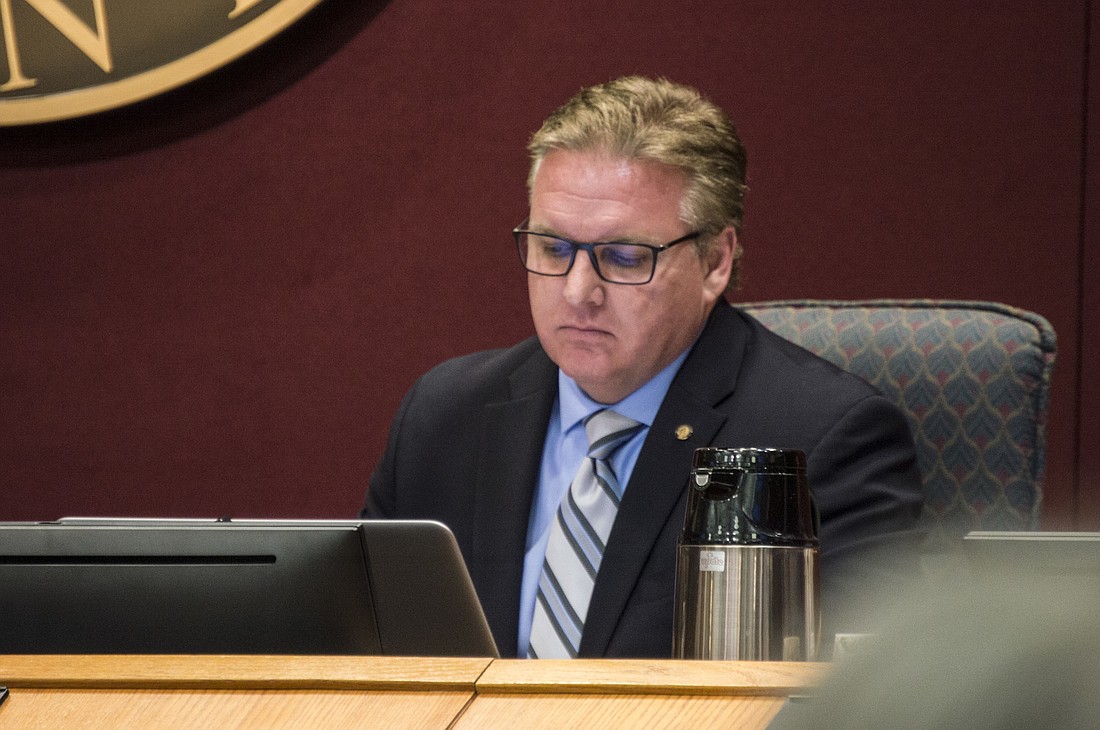- April 26, 2024
-
-
Loading

Loading

There was one thing on many local leaders’ minds as the Sarasota County Commission began preliminary discussions about its budget: COVID-19.
Commissioners began planning for the new fiscal year Thursday, though it quickly became clear that it would be difficult to plan while the full effect of COVID-19 on county revenue is still unclear.
Sean Snaith, the director of the Institute for Economic Forecasting, told commissioners that the country is currently in the worst recession it has seen since 2008-09. However, he expects it to last between three to six months, unless there is a second lockdown.
“The longer we stay in these lockdown situations, the more severe the recession is going to become and the more difficult it would be to climb out again,” Snaith said.
He predicts the U.S. economy, and thus the county’s economy, will begin to grow in the third quarter. However, he did warn commissioners that money from the tourist development tax and gas tax could be slow to grow.
“There is a fear of traveling right now,” Snaith said. “So we have to think about what the fear factor will be. How willing are people going to be to get into those beds? Will snowbirds leave the nest to come down this winter?”
Although funds from the TDT and gas tax will affect the county’s overall revenue, Jay Glover, managing director of PFM Financial Advisors LLC, said it shouldn’t affect the county’s credit greatly.
Although some of the county’s liens use revenue from half-cent sales tax and gas tax, it does not have any tied to the tourist development tax, which have recently caused credit raters to lower municipalities’ scores.
The county was rated AAA, or stable outlook, by Fitch Ratings and S&P Global for high general fund reserves and financial policies. However, it was rated AA+ on capital improvement funds because one bond is secured by sales tax.
Glover said that even with the AA rating, the county’s credit is in good standing, which will help facilitate attractive interest rates for borrowing.
Commission Chair Mike Moran, however, questioned whether that rating would remain strong if the county dips too greatly into its $21 million emergency fund.
“My concern is that it’s game time now, and this is what this fund is for: economic uncertainty and to make sure our budget is stable,” he said.
“But have the agencies gotten used to seeing that fund balance? If we use it, will that be looked on negatively?”
Glover said that as long as the county has a definitive plan for what it will spend the reserve money on and how it will rebuild the reserves when it is out of crisis, it should not affect the overall rating.
Carolyn Eastwood, the director of capital projects, told commissioners that the projected surtax revenue loss for fiscal year 2020, which ends in September, is $7 million and $8.5 million for fiscal 2021.
To combat that, Eastwood said each department director was asked to look at which projects funded by the surtax could be paused or deferred.
Those projects include jail renovations, hardened emergency evacuation center space and a sidewalk program in 2020, as well as transit vehicle purchases, park ADA improvements and street-tree programs in fiscal 2021.
Commissioners discussed placing a surtax referendum vote on the November ballots. However, the surtax doesn’t expire until December 2024, and some commissioners feared voters might be wary of giving money during an economic downturn, so the board decided to wait on the vote until November 2022.
The county also is projected to lose $4.5 million in gas tax revenue over the next two fiscal years.
To accommodate, county staff proposes the county focus on large projects already in motion, such as three new fire stations, affordable and workforce housing, and work on the Bee Ridge Water Reclamation Facility.
Staff will continue to look over the effects of COVID-19 and present to the board budget proposals for fiscal 2021 in a July 1-2 workshop.
The final budget workshop will be Aug. 31 with adoption of the budget Sept. 23.